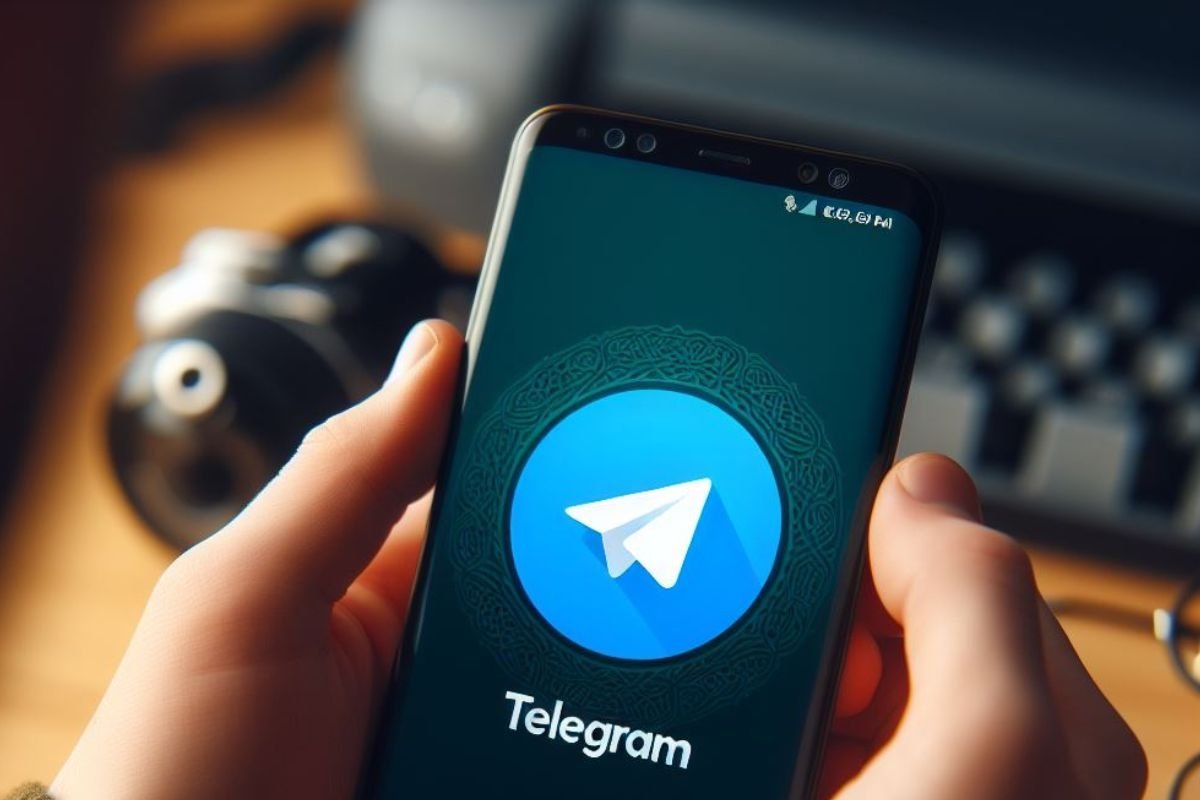Understanding 'Telegram Somali Qarxis 30': What It Means Today
The digital world, it's almost, truly a place where information moves very, very fast. For the Somali community, particularly, platforms like Telegram have become central hubs for sharing news, discussions, and quite a lot of other content. We see, too, how specific phrases gain significant traction, sparking interest and conversations across many groups. One such phrase making its way around is "telegram somali qarxis 30," which, in some respects, has captured the attention of many online users, and people are really curious about what it represents.
This particular term, "telegram somali qarxis 30," hints at a specific type of content or a particular series of discussions that are quite popular within Somali online circles. It suggests, you know, a focus on revelations or information shared that might be considered sensitive or, perhaps, a bit revealing. The number "30" could mean many things; it might be a version number, a specific date, or even a count of items within a collection. People are, in fact, often drawn to content that promises to offer a peek behind the curtain, and this phrase certainly carries that kind of appeal.
Our discussion here will explore what might lie behind "telegram somali qarxis 30," looking at the role Telegram plays in information sharing for Somalis, and the broader implications of such content. We will, of course, think about why these kinds of discussions matter to people and how they fit into the bigger picture of online interaction. It's about, you see, getting a better handle on the digital conversations that shape community views and spread news, even if it's, perhaps, unofficial news, and that's really what we're aiming for.
Table of Contents
- Telegram as a Community Hub: A Digital Gathering Place
- Decoding 'Qarxis' in the Somali Context: What It Implies
- The Significance of the Number '30': More Than Just a Figure
- Why 'Telegram Somali Qarxis 30' Draws Attention: Community Interest
- The Impact of Shared Information on the Community: A Closer Look
- Navigating Online Content and Digital Safety: Good Practices
- The Role of Digital Literacy in Today's World: Essential Skills
- Frequently Asked Questions About Online Information Sharing
- Final Thoughts on Online Discussions
Telegram as a Community Hub: A Digital Gathering Place
Telegram, you know, has become a very popular messaging application across the globe, and particularly so within the Somali community. It offers, too, features that allow for large group chats and channels, making it a natural fit for community discussions and the quick sharing of information. People use it for everything from daily conversations to broadcasting important news, and it's almost, truly a central point for many.
This platform’s ability to handle many users in a single group means that news, opinions, and various forms of content can reach a wide audience very quickly. It's a place where, in fact, community members can connect, exchange ideas, and stay updated on local and global events. We see, too, how its ease of use and accessibility contribute to its widespread adoption, making it a key player in the digital lives of many Somalis, and that’s a really big part of its appeal.
The speed at which information spreads on Telegram is, in some respects, both a strength and a challenge. While it allows for rapid communication, it also means that content, including things like "telegram somali qarxis 30," can circulate before its accuracy is, perhaps, fully checked. This dynamic creates a very interesting environment where people are constantly processing new inputs, and it's something we should really consider when thinking about online interactions.
Decoding 'Qarxis' in the Somali Context: What It Implies
The word "qarxis" in Somali carries, you know, a sense of exposure or revelation, almost like something being brought out into the open that was previously hidden. When we see it combined with "telegram somali," it suggests that this exposure is happening within the context of online communication, often through shared messages or files. It's about, too, information that might be seen as uncovering facts or details, and that’s a really powerful idea.
This idea of "qarxis" often, in fact, sparks a lot of interest because people are naturally curious about what secrets might be revealed. It could refer to anything from political discussions to social commentaries, or even personal stories that gain public attention. The term itself, you see, hints at content that is meant to surprise or inform people about things they might not have known otherwise, and that's why it grabs people's attention.
When something is labeled "qarxis," it typically carries, too, an implicit promise of unique or impactful information. This makes such content very compelling for users looking for deeper insights or alternative perspectives on various matters. It’s a term that, in some respects, really drives engagement and encourages people to seek out and consume the content being shared, and that’s a pretty strong motivator.
The Significance of the Number '30': More Than Just a Figure
The number "30" in "telegram somali qarxis 30" could, you know, mean several different things, and its exact meaning might only be clear to those directly involved with the content. It might represent, for instance, a specific volume or edition in a series of shared information, like "part 30" of an ongoing revelation. This kind of numbering is, too, quite common in online content that unfolds over time, and it helps people keep track.
Alternatively, the "30" could, in fact, point to a particular date, a count of items within a collection, or even a reference to a specific group or event. Without more context, it's a bit like trying to solve a puzzle with just one piece. What we do know, however, is that its inclusion suggests a level of organization or specificity that helps users identify and follow the particular thread of information it relates to, and that’s pretty useful.
For those following "telegram somali qarxis 30," the number likely acts as a key identifier, helping them locate the specific discussions or content they are interested in. It helps, too, to distinguish this particular set of information from other similar topics that might be circulating. This level of detail is, in some respects, important for people who are trying to make sense of the vast amount of information available online, and it really guides them.
Why 'Telegram Somali Qarxis 30' Draws Attention: Community Interest
The allure of "telegram somali qarxis 30" stems from, you know, a combination of factors that resonate deeply within online communities. People are often drawn to information that feels exclusive or, perhaps, offers a different angle on current events. The promise of "qarxis" itself, which implies revelations, creates a sense of anticipation and curiosity, and that’s a powerful draw.
In communities where traditional media might not always cover every angle, or where there's a desire for more immediate and unfiltered information, platforms like Telegram become very important. Content like "telegram somali qarxis 30" can fill a perceived gap, providing discussions and details that people might not find elsewhere. It's about, too, connecting with shared interests and feeling part of a conversation that matters to the community, and that's a very human need.
The very nature of online sharing means that popular content spreads quickly through word-of-mouth, or rather, word-of-link. When many people are talking about something, others naturally want to know what the fuss is about. This social dynamic, in fact, plays a significant role in how phrases like "telegram somali qarxis 30" gain momentum and capture widespread attention, and it’s a very interesting phenomenon.
The Impact of Shared Information on the Community: A Closer Look
When content like "telegram somali qarxis 30" circulates, it can, you know, have a range of effects on the community. On one hand, it might foster open discussion, allowing people to talk about important issues that might otherwise be ignored. It can, too, empower individuals by giving them access to information and different viewpoints, which is pretty valuable.
However, the rapid spread of information, especially content that claims to be revealing, also carries potential challenges. There's a need, in fact, for users to think critically about what they see and hear, and to consider the source of the information. Not everything shared online is, perhaps, accurate or presented with full context, and that’s a very important point to remember.
The discussions around "telegram somali qarxis 30" can, in some respects, shape public opinion and influence how people understand events or individuals. This means that the responsibility of sharing and consuming such content thoughtfully falls on everyone involved. It’s about, too, making sure that these conversations contribute positively to the community, and that’s a big task for all of us.
Navigating Online Content and Digital Safety: Good Practices
In a world where phrases like "telegram somali qarxis 30" are common, knowing how to navigate online content safely is, you know, more important than ever. It's about developing a good approach to what you read and share, especially on platforms that allow for very quick dissemination of information. We should, too, always be mindful of our digital footprint and the implications of our online actions, and that’s a very practical step.
One good practice is, in fact, to always consider the source of any information you encounter. Is it from a known, reliable channel, or is it something that just appeared without much background? Taking a moment to ask these questions can, perhaps, save you from spreading misinformation or encountering content that might be harmful. It's a simple step, but it really makes a difference.
Another key aspect of digital safety involves protecting your own privacy. When participating in discussions related to sensitive topics, it's important to think about what personal information you share and with whom. Platforms like Telegram offer various privacy settings that users can, too, adjust to control who sees their messages and profile details. Learn more about managing your privacy settings on our site, and you can also check this page for tips on securing your online communications. Being proactive about these settings helps keep your online experience safer, and that’s really worth the effort.
The Role of Digital Literacy in Today's World: Essential Skills
Digital literacy, you know, is about having the skills to find, evaluate, create, and communicate information using digital technologies. In the context of "telegram somali qarxis 30" and similar online discussions, it’s absolutely essential. It helps people, too, make informed decisions about the content they engage with and how they contribute to online conversations, and that’s a very valuable skill.
Having good digital literacy means you can, in fact, tell the difference between reliable news and unverified rumors. It involves understanding how algorithms work, how information spreads, and the potential biases that might be present in online content. This kind of awareness is, perhaps, what helps people navigate the vast sea of information on platforms like Telegram without getting lost or misled, and that’s a very practical benefit.
Encouraging digital literacy within the community is, in some respects, a collective effort. It involves educating people of all ages about responsible online behavior, critical thinking, and the importance of verifying facts. By building these skills, communities can, too, foster a more informed and resilient online environment, where discussions around things like "telegram somali qarxis 30" can happen in a more constructive way, and that’s a really positive goal.
Frequently Asked Questions About Online Information Sharing
What does "qarxis" generally mean in the context of Somali online discussions?
In Somali online discussions, "qarxis" typically refers to, you know, information that is meant to expose or reveal something previously hidden or not widely known. It suggests, too, a kind of disclosure or a bringing to light of facts, which can be about various topics, from social issues to political matters. People are often drawn to it because it promises new insights, and that’s a very common appeal.
How can I verify information I find on Telegram groups?
To verify information from Telegram groups, it's a good idea, you know, to cross-reference it with multiple, reputable sources. Look for official news outlets, government websites, or established organizations that cover the topic. You should, too, be wary of information that only appears in one place or lacks any supporting evidence. Taking these steps helps ensure you are getting accurate details, and that’s pretty important.
Is it safe to share sensitive information in online groups?
Sharing sensitive information in online groups, in fact, carries some risks, even on platforms with strong privacy features. Once something is shared, you have, perhaps, less control over where it goes or who sees it. It's always best to think carefully about the potential consequences before posting anything personal or confidential. We should, too, remember that what goes online can stay online, and that’s a very real consideration.
Final Thoughts on Online Discussions
The discussions around phrases like "telegram somali qarxis 30" show, you know, the lively and active nature of online communities, especially on platforms like Telegram. These spaces serve as important avenues for communication, allowing people to share ideas, news, and various perspectives very quickly. It's a testament, too, to how digital tools shape our daily interactions and the flow of information, and that’s pretty clear.
As these conversations continue, it becomes, in fact, more and more important for everyone to approach online content with a thoughtful and critical mindset. Understanding the dynamics of information sharing, the meaning behind terms like "qarxis," and the impact of our digital actions is, perhaps, key. This helps foster a more informed and responsible online environment for all users, and that’s a very good thing. For more general news and discussions related to the Somali community, you might find resources like Hiiraan Online helpful, as they provide a broad range of information, and that’s a good starting point.

Telegram logo PNG

Telegram Logo, symbol, meaning, history, PNG, brand

What is Telegram and what is it for